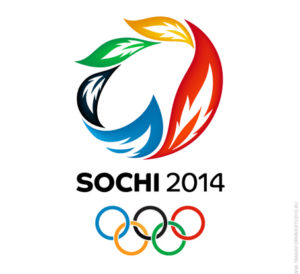 As the Sochi Olympics begin, tension continues to grow. The fear of an act of terrorism is so strong that it’s even keeping some Olympic athletes’ families and friends home to watch the games over the television. Terrorism has become such a realistic horror in our world today that the threats made towards the games are being met with worry and intense preparation by all involved – including the Sochi Olympic sponsors.
As the Sochi Olympics begin, tension continues to grow. The fear of an act of terrorism is so strong that it’s even keeping some Olympic athletes’ families and friends home to watch the games over the television. Terrorism has become such a realistic horror in our world today that the threats made towards the games are being met with worry and intense preparation by all involved – including the Sochi Olympic sponsors.
I was approached this week by Bruce Horovitz, a reporter for USA TODAY, who wanted to interview me, along with some other crisis pros, for a piece he was writing on the Olympic sponsors being on edge before the winter games. (The piece is well written, if you’re interested in reading it click here.)
Horovitz brought up, and together we discussed, a looming threat that we all can only hope has been discussed internally by the many powerful brands that make up the top Olympic sponsors.
Knowing and having worked with some of the brands on the Olympics sponsors list, I feel confident that many of them are adequately prepared. However, with the chance that some of them are not as crisis-ready as they could or should be, below are 5 important crisis management tips that the Sochi Olympic Sponsors need to be prepared with – as do you. Why? Because it plain old Crisis Intelligence, that’s why!
5 Crisis Management Tips for the Sochi Olympic Sponsors
1- You can’t have a strategy or a plan without first identifying the risks involved.
The truth is that no one ever can. This makes a risk assessment and a vulnerability audit the very first steps in beginning to be prepared for the worst. If this hasn’t yet been done, I don’t know what you’re waiting for!
2- Know when to stop all marketing messages and make sure that if they need to be stopped, they’re stopped not a minute too late.
This requires understanding the importance of this essential need and assigning a dedicated member(s) of your team to be responsible for this action. Remember: a terrorist attack can unfortunately happen at any time of the day or night, so having a few people on rotation for this duty wouldn’t be the worst idea.
3- Understand when to keep silent and when to speak up in an expression of sincere concern, compassion, empathy and guidance.
As a leader you need to be able to communicate your sincerity as humans talking to humans. Going a step further, it’s also important to identify the types of scenarios where your organization can offer true help to the public. Not an advertising scheme, but valuable help that puts your means to a much needed end.
From there, know when that help needs to be broadcasted (i.e.: when you need to get the message out in order to further the benefits of your help – not your organization), and when to stay silent and simply do the right thing behind the scenes (letting your goodwill be broadcasted by others, in a natural and authentic way).
4- Have your crisis communications drafted and your spokesperson(s) put through a refresher round of crisis media training.
Even if the crisis doesn’t directly impact your organization, it risks impacting your customers and the rest of the world. This means that the spotlight may ultimately shine on you for some reason or another and you absolutely need to be prepared with the right communications and the right spokesperson.
5- Identify your social media outposts for crisis communications.
When would a video be called for? Is your YouTube channel set up and optimized? What online channels will the majority of your audience and the Olympic’s audience use to monitor and discuss throughout the games? Do you have an account on those channels? Does your team know how to maximize their use and reach? Are you set up to monitor all social conversations, media outlets, etc. 24/7/real-time? I sure hope so – to all of it.
Plan for the worst, but let’s all hope for the best
The more prepared you are, the more you equip your team to position your organization as a much needed leader in times of desperation and chaos.
That said, although it’s extremely important to be prepared, we’re all hoping for a terrorist-free Olympic season.

Author of Crisis Ready: Building an Invincible Brand in an Uncertain World, Melissa Agnes is a leading authority on crisis preparedness, reputation management, and brand protection. Agnes is a coveted keynote speaker, commentator, and advisor to some of today’s leading organizations faced with the greatest risks. Learn more about Melissa and her work here.

Great strategies Melissa, but how about just not pour cash into such controversial situations & risk brand damage in the first place?
It's a thought – though one that seems even less realistic than having a crisis plan created…
How so? A crisis plan is not relevant if the companies didn't take the risk of alienating their consumers in the first instance. Not trying to be controversial, but it is a relevant point.
I was being sarcastic! Yes, I think it's a relevant point but not a realistic one for these organizations. Many of them wouldn't miss out on sponsoring such a global event due to these risks.